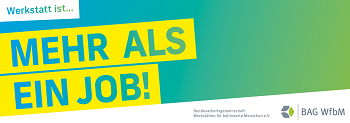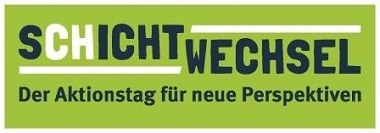If an employer hires a former workshop user who is trying to make the transition onto the open labour market, there is financial support for a testing-period of three months. The complete costs of labour of the person can be paid by the rehabilitation agency. In some cases, financial support can be given for more than three months, depending on the individual case (§ 46 SGB III).
The rehabilitation, the integration or the federal employment agency bear the costs for the accessibility and the workplace adaption for a person with disability. The employer is entitled to receive the complete costs depending on the individual case.
Additionally, there is a compensation for the lower working performance of people with disabilities who work under the conditions of the open labour market. The amount of money paid depends on the level of performance and also on the need for qualification, adjustment to the new job, etc. Support of up to 70% of the wages for a period of 24 months is possible (§ 90 SGB III). For people with particular severe disabilities – for example people with disabilities who come from sheltered workshops – can receive support for a period of 60 months. If the work performance improves after 12 months, the financial support is reduced by 10% per year.
People with disabilities who are considered fully incapacitated for work and are therefore entitled to the services of a sheltered workshop can also use the so-called ‘budget for work’ (§ 61 SGB IX) or ‘budget for apprenticeship’. This measures were explicitly introduced by the new legislation described above to provide an alternative to the services of sheltered workshops for people unable to work under the conditions of the open labour market, but who still prefer to work outside a sheltered workshop.
The new regulation states that people with disabilities who are entitled to the services of a sheltered workshop and who are offered an employment contract on the open labour market, which is remunerated according to market conditions or a collective agreement, are entitled to a ‘budget for work’. Basically, the ‘budget for work’ is a service to enable participation in working life and thus despite their employee status, these people remain fully incapacitated for work legally. The ‘budget for work’ includes a wage subsidy of up to 75 % paid to the employer to compensate for lower work performance. In addition, it covers the expenses for disability-related guidance and assistance at the workplace.
The services related to the ‘budget for work’ can be carried out by a sheltered workshop or other service providers.
In 2020 the ‘budget for apprenticeship’ enacted into law. People with disabilities who are entitled to the services of sheltered workshop and who are offered an apprenticeship on the open labour market are entitled to it.































